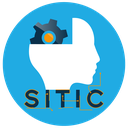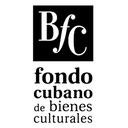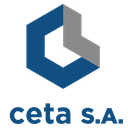Executive Secretary

III International Symposium on “Generation and Transfer of Knowledge for Digital Transformation
SITIC 2025
Abstract
This work proposes the development of an intelligent system for teaching French as a foreign language, integrating advanced Natural Language Processing (NLP) technologies such as Large Language Models (LLMs), Retrieval-Augmented Generation (RAG), specialized ontologies, and interpretation agents. The main objective is to create an adaptive and personalized learning tool that generates contextual explanations, exercises, and automatic assessments in French, improving the model's accuracy through RAG with reliable pedagogical sources. To achieve this, an ontology that structures linguistic knowledge (grammar, vocabulary, CEFR levels) and intelligent agents that analyze student progress, adjusting the difficulty in real time, are implemented. The methodology combines the generative capacity of LLMs (such as GPT-4 or Mistral) with contextualized information retrieval through RAG, avoiding hallucinations and ensuring pedagogically sound responses. The expected results include an interactive prototype that allows for conversational practice, grammar correction, and personalized feedback. It will be evaluated through A/B testing with real users to measure its effectiveness. In conclusion, this system merges the flexibility of generative AI with the structured knowledge of ontologies and the adaptability of intelligent agents, offering an innovative approach to language teaching, with possible future extensions to other languages and improvements in the interpretation of learners' emotional needs.
Resumen
Este trabajo propone el desarrollo de un sistema inteligente para la enseñanza del francés como lengua extranjera, integrando tecnologías avanzadas de Procesamiento del Lenguaje Natural (PLN) como Large Language Models (LLMs), Retrieval-Augmented Generation (RAG), ontologías especializadas y agentes de interpretación. El objetivo principal es crear una herramienta de aprendizaje adaptativo y personalizado que genere explicaciones contextuales, ejercicios y evaluaciones automáticas en francés, mejorando la precisión del modelo mediante RAG con fuentes pedagógicas confiables. Para ello, se implementa una ontología que estructura el conocimiento lingüístico (gramática, vocabulario, niveles CEFR) y agentes inteligentes que analizan el progreso del estudiante, ajustando la dificultad en tiempo real. La metodología combina la capacidad generativa de LLMs (como GPT-4 o Mistral) con la recuperación de información contextualizada mediante RAG, evitando alucinaciones y garantizando respuestas pedagógicamente sólidas. Como resultados esperados, se prevé un prototipo interactivo que permita prácticas de conversación, corrección gramatical y retroalimentación personalizada, evaluado mediante pruebas A/B con usuarios reales para medir su eficacia. En conclusión, este sistema fusiona la flexibilidad de la IA generativa con el conocimiento estructurado de ontologías y la adaptabilidad de agentes inteligentes, ofreciendo un enfoque innovador en la enseñanza de idiomas, con posibles extensiones futuras hacia otros lenguajes y mejoras en la interpretación de las necesidades emocionales del aprendiz.
About The Speaker

Dr. Amed Abel Leiva Mederos

Profesor del departamento de CI
Discussion

 Gold
Gold
 Gold
Gold
 Gold
Gold
 Gold
Gold
 Silver
Silver